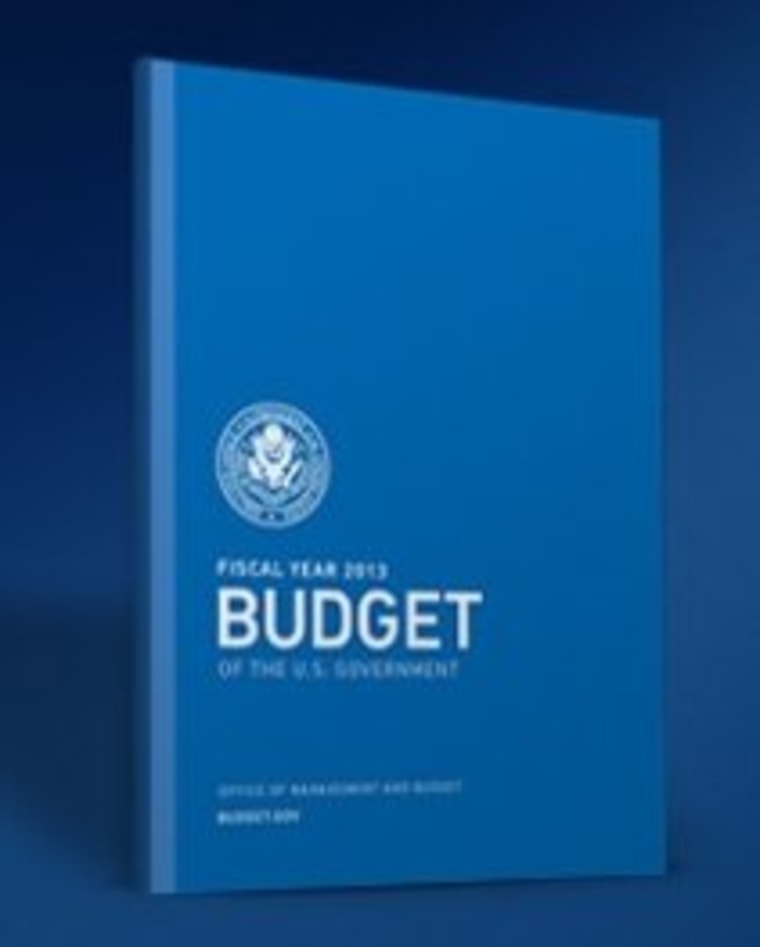At a certain level, it's understandable to think the new White House budget plan is unimportant, or at a minimum, political theater. Given the far-right Republican majority in the House, there's simply no way this budget will be approved by Congress, making the new White House document more of an opening bid than a realistic plan.
But don't dismiss it too quickly. As a political document, President Obama's budget tells us quite a bit about his priorities, his ideological goals, and what he intends to fight for, and in the process, it helps set the stage for the kind of fights we can expect to see over the next several months. Brian Beutler explained earlier:
Neither the GOP budget nor Obama's counteroffer will -- or are even intended to -- become law. But they represent fresh bids in the ongoing fight between the parties over the scope of the safety net, and the question of whether the wealthiest people in the country contribute too much, or not enough, to the public purse.The policies Obama will advocate are broadly popular; the GOP's counter proposals are popular among their conservative supporters.
With that in mind, here are a handful of angles to keep an eye on as the budget fight unfolds in earnest:
* Domestic priorities: The White House budget intends to boost spending on "job-creation initiatives for infrastructure, job-training and innovation."
* Taxes: Obama's plan reflects the arguments the president has pushed for a long while, calling for "tax dividends of the wealthiest taxpayers as ordinary income subject to their top income-tax rate." This idea alone, which Republicans hate with the heat of a thousand suns, would raise roughly $206 billion over 10 years.
* Oil companies: The oil and gas industries continue to enjoy generous taxpayer subsidies every year. The White House plan "would nix roughly $39 billion worth of tax breaks" over the next decade.
* Infrastructure: The administration's budget would take money that was going to the wars in Iraq and Afghanistan and use it to nearly double investments in "U.S. highway, bridge and mass transit projects."
* Deficit: Obama would use higher taxes on the wealthy, and fewer tax subsidies for oil companies, to help bring down the deficit. Overall, the White House plan would reduce the deficit by about $4 trillion over the next decade, though the White House plan prioritizes economic growth in the short term, and leaves debt reduction for another day.
* Striking a chord for budget honesty: If the White House were more inclined to rely on gimmicks, the deficit figures would look a lot better. Whereas Bush/Cheney consistently chose to ignore the cost of wars, the Medicare "doc fix," and AMT costs to make it appear they were keeping deficits down, Obama's team is playing it straight. This matters: "If the Obama White House had budgeted for 2013 and beyond the way Mr. Bush had, its deficit forecast for 2022 would have been $167 billion, or 0.7 percent of the economy. Instead, because White House budget writers are adjusting for such costs, the deficit is forecast to be 2.8 percent of the economy that year, $704 billion."
The politics of this larger fight would appear to favor the president -- most of the American mainstream endorses Obama's priorities, including higher taxes on the very wealthy -- though that's unlikely to persuade congressional Republicans.
